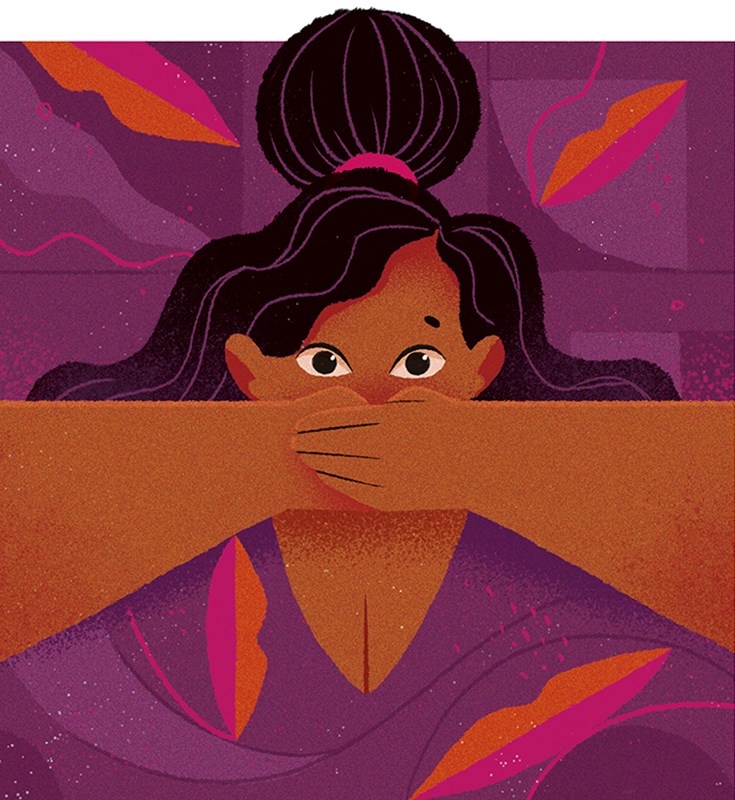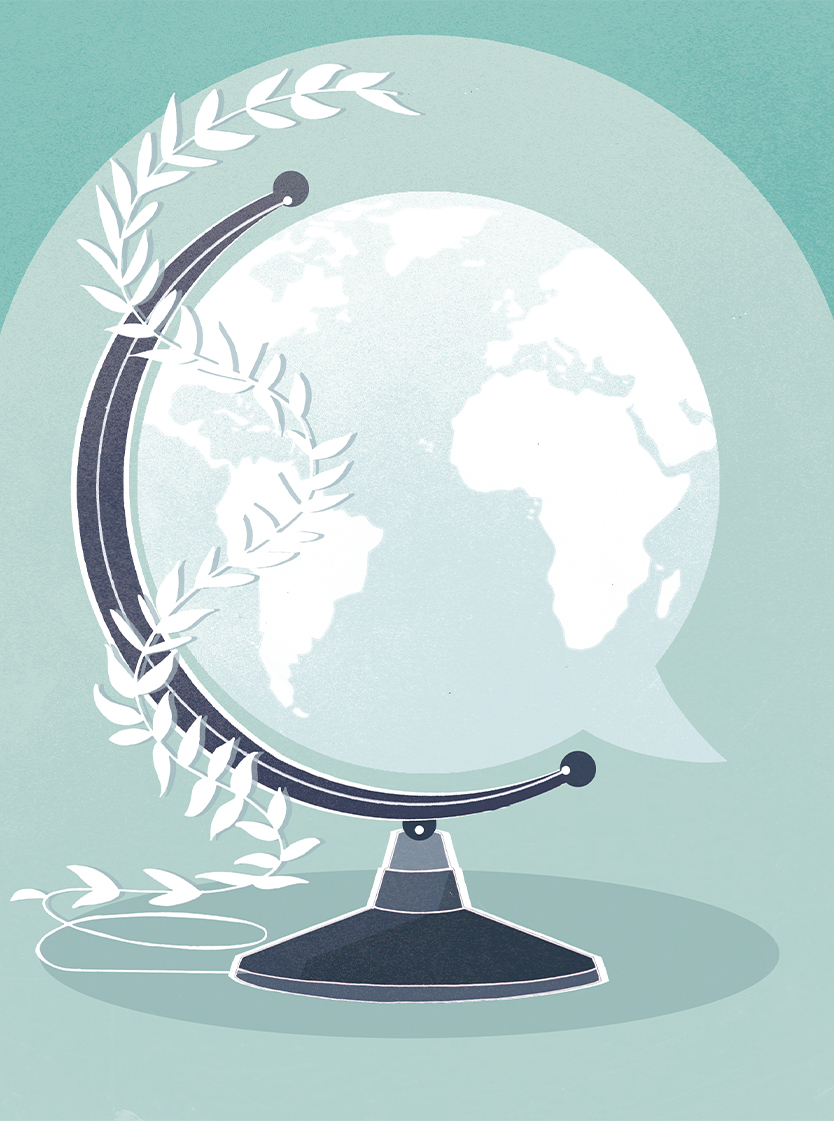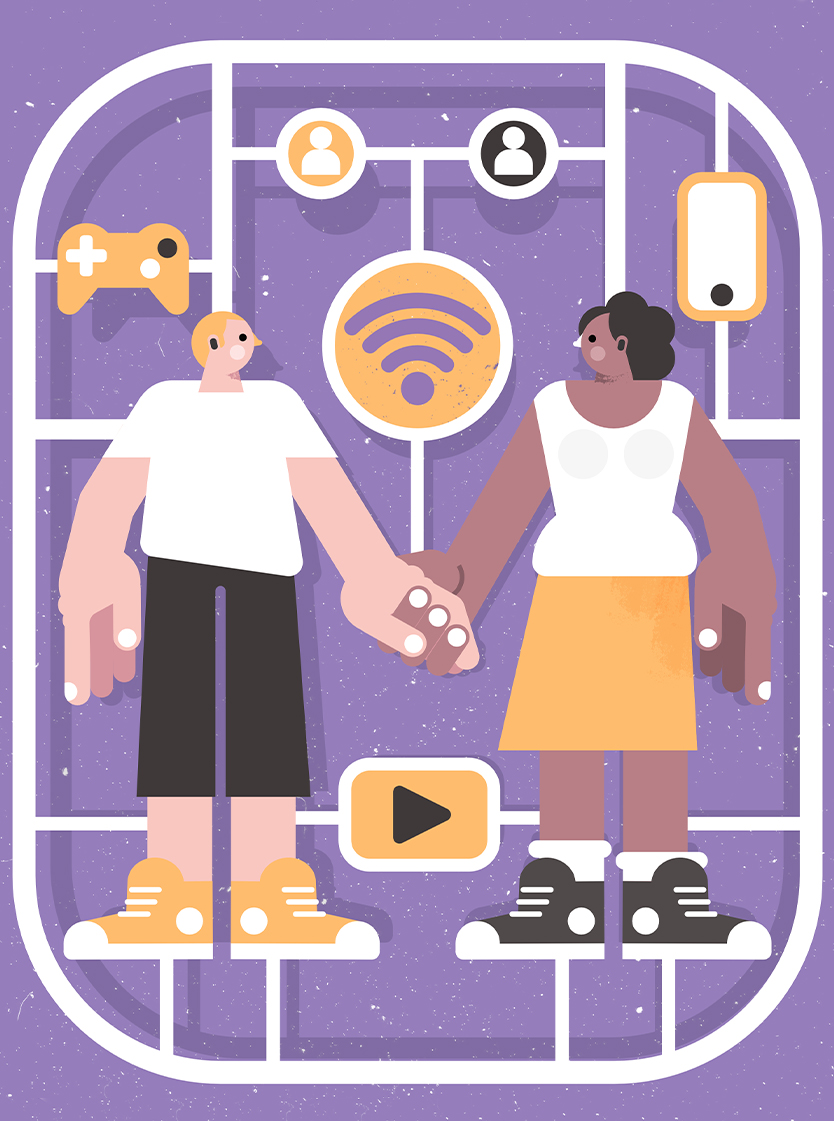Women’s voices are the future for peace
By Leymah R. Gbowee

Rodrigo Cordeiro

Women’s voices continue to be left out in the places and spaces that truly matter, especially in relation to peace, writes Liberian Nobel Peace Laureate Leymah R. Gbowee. This has to change for the good of our world: inclusion dignifies all.
Nothing for us without us, For us by us, Women’s voices matter, Women’s rights are human rights: these are all slogans we hear daily about women’s rights and the need for their involvement in all processes at all levels. Unfortunately, the reality of our world is that women’s voices continue to be left out in the places and spaces that truly matter.
In my life and work as a peace activist, I have seen first-hand how the inclusion of women in peace processes yields more significant results. Data also shows that peace processes that included the unique voices and skills of women tend to be more sustainable than those that left women out. It’s therefore no surprise that, in 2000, the UN Security Council unanimously adopted Security Council Resolution 1325 calling for women’s inclusion at all levels of peace and security processes.
In 1989, two days after my high school graduation, my home country Liberia was plunged into one of Africa’s deadliest ever civil wars. As a young girl, I was brought up to believe that women played a role in the nation-building process. Our collective humanity mattered—men, women, boys, and girls. Fourteen-years-later, the devastation of the war was unbearable. Women and girls bore the brunt of the war; rape and abuse were commonplace. In 2003, a group of us women decided that enough was enough. It was time for us to change the war’s narrative and coverage from ‘boys with guns’ to ‘women advocating for cessation of hostilities and sustainable peace’.

We led a non-violent mass action campaign to end Liberia’s brutal civil war. Although our initiative has been recorded in history as being a grassroots movement, this doesn’t take away from the fact that we successfully contributed to Liberia’s peace. Many scholars and strategic thinkers still wonder how it was possible for women who were abused and mistreated to lead a campaign that contributed to the war’s end. The answer is simple: we knew our communities, the hidden players in the conflict, and we knew who to talk with and when to step out. We were the experts in our local community; we had the contextual knowledge to our advantage. Our primary goal was peace for Liberia, and a future for all.
Most often, I get asked: ‘Are women more peaceful than the men?’ My answer is: ‘We are more thoughtful and considerate in peace processes than men’.

Women’s involvement in peace processes is never for jobs or financial benefit. In every context I have worked, the women’s goal has been to end wars and ensure that the vast majority of the population has access to their basic human security needs.
The importance of having women’s voices in the future of peace will ensure that our understanding of peace is not just restricted to ending wars. Rather our collective understanding of peace then becomes the presence of conditions that dignifies all. Women’s voices in the future of peace means the conversations will shift from militarism to human security needs, from ending wars to preventing wars. And it will change the old age mindset that ‘men make wars, and men should make peace’ to ‘peace, and the conversation about peace, must be inclusive’.
The current reality of the world in which we live makes it impossible to exclude any group from any process. Leaving women out of these processes reinforces the meaning of insanity, doing the same thing repeatedly and expecting a different result.
My country Liberia remains one of the best examples of sustainable peace, following years of a deadly civil war. It has now been 18-years since the signing of the comprehensive peace agreement and 16-years since the first post-conflict elections. We have successfully witnessed the first peaceful democratic transition of power in 73 years.
“Women have proven time and again that their voices are critical and strategic in the discourse about peace”
Leymah R. Gbowee

This, in my strongest opinion, has only been possible based on the following. First, women’s involvement in the peace process. Second, the constant and consistent engagement of Liberian women in everything aimed at sustaining the hard-earned peace. And third, women’s visibility in these processes, which has emboldened and inspired a whole generation of young women activists.
Imagine walking into a room and trying to view the entire room with your one eye covered. It’s impossible. We need both eyes to get a full and realistic view of the room.
The debate about including women’s voices in the future of peace should not even be happening in the 21st century. Women have proven time and again that their voices are critical and strategic in the discourse about peace.
There is absolutely no way we can create a ‘Future of Peace’ without women’s voices, skills, and intellect. ‘For us by us’, ‘Nothing for us without us’, ‘Women’s rights are human rights’. These are all pleasant to the ears, but now is the time to turn this rhetoric into a reality for the good of our world.








